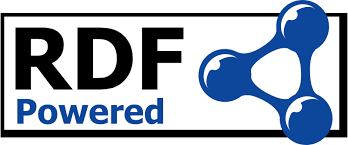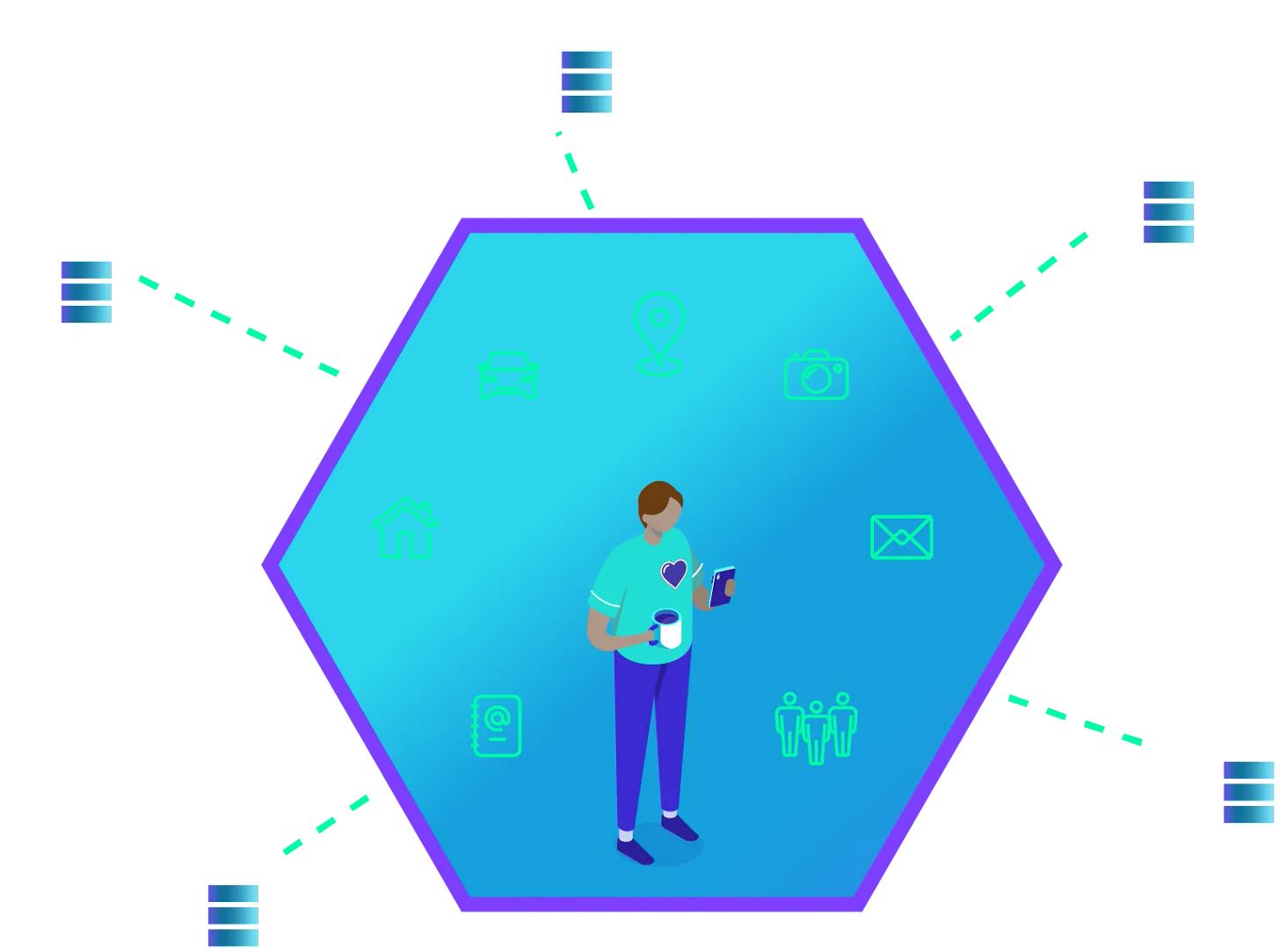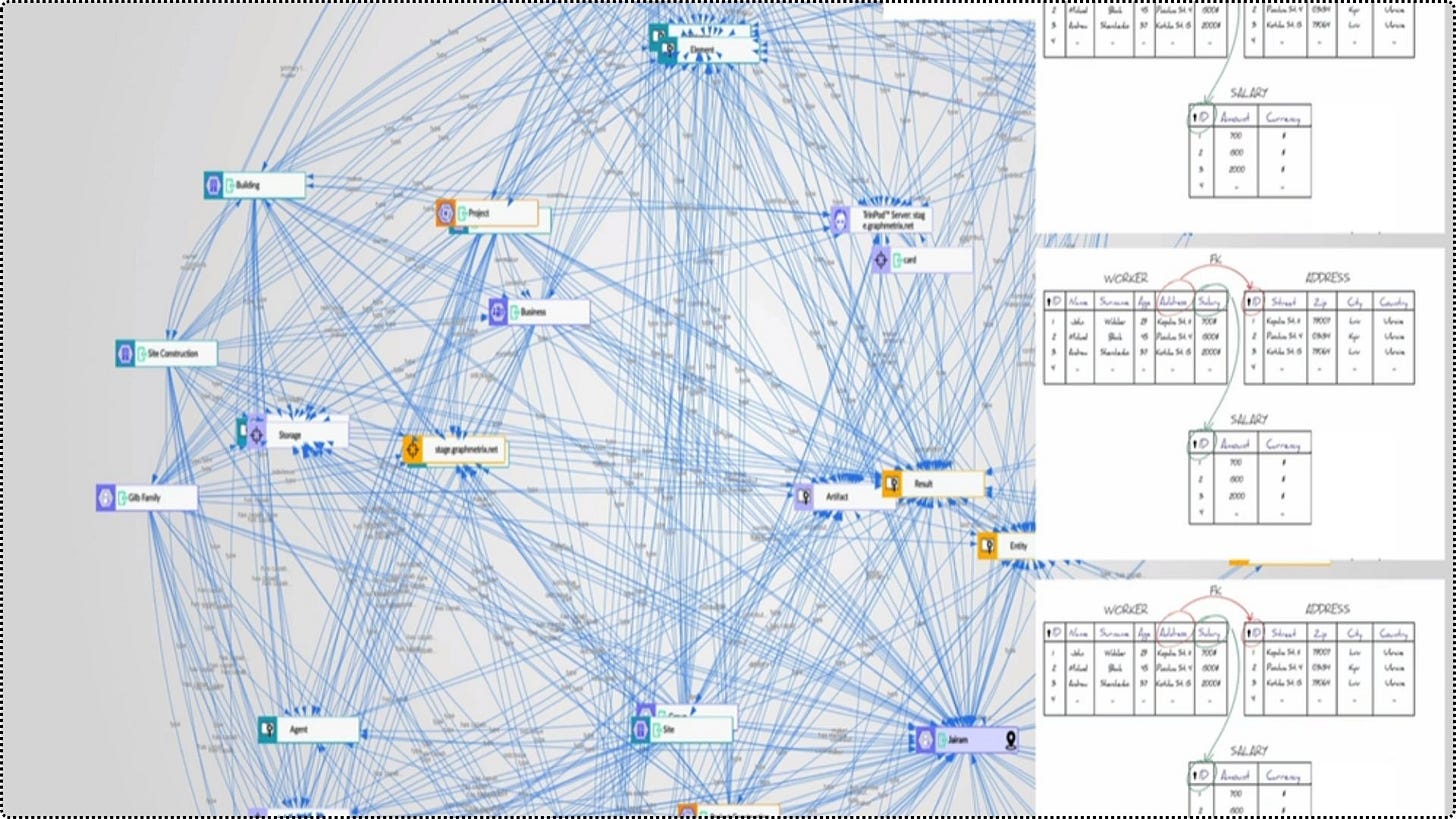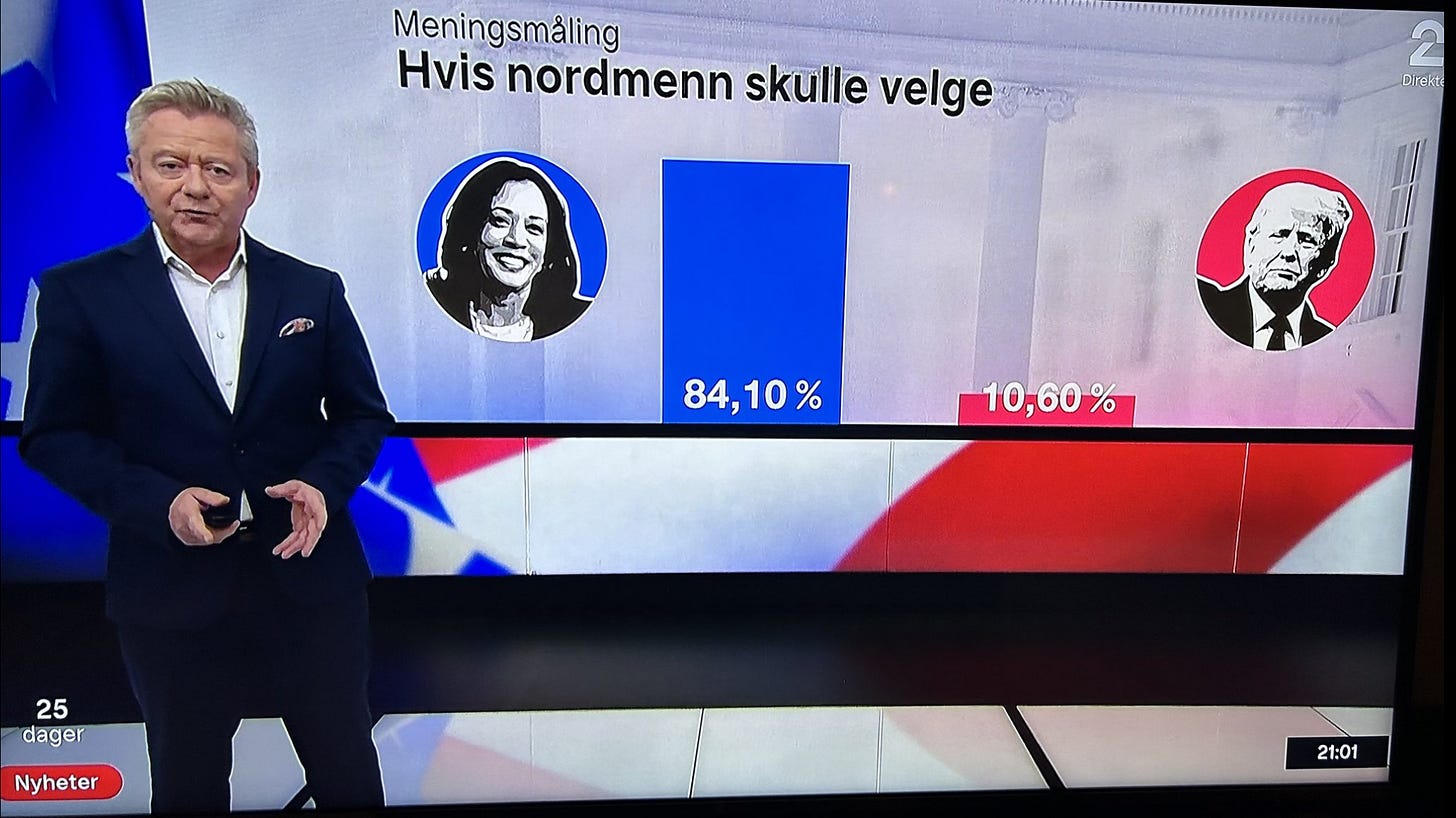The Meaning Web
Thank God Trump won
Let’s take 10 seconds and be thankful that we are not in a parallel universe, where an alcoholic woke hyena still runs the World.
Today we'll first look at Web 2.0 and illustrate the problems it has caused, and then Web 3.0 to show how to solve those problems while also laying the groundwork for maximum economical capitalization on exponential growth. Imagine a world you can interact with in entirely new ways, as we saw last time. The Meaning Web is the most crucial technology to realize this in a way that maximizes both value creation and freedom. Let’s go!
Web 2.0
First, let's look at how it works. Remember when websites used to crash? We had a problem with servers having limited data resources. Being able to scale quickly if you suddenly got a rapid increase in users for your platform would solve a big problem.
That's why we started building data centers, 'Cloud computing', where you could lease storage space as needed. Web 2.0. Fantastic for scaling internet businesses.
Of course, the industry got a little boost from this, but it wasn't this market that the Tech providers chose to focus on. All that data stored in the cloud centers was identified as a significant marketing resource combined with people starting to get smartphones. The information we give away is very useful for those trying to sell. There's nothing wrong with Tech companies taking over and optimizing personalized marketing in itself. It's good for me if I easily find products that have utility value for me, and it's useful for capitalism that they find interested buyers. There's nothing inherently wrong with that.
The problem arises when social media, which should aim to connect us closer together, is built on marketing. There are two opposing incentives.
A bit like if an old friend asks you out for coffee; you look forward to a nice chat, but he had hidden plans to pitch you his new hopeless company, and you feel used.
All future-usefulness morality, no now-usefulness morality, to connect it to earlier blogs.
That! At scale. As a foundation for collaboration. Odd that we live in fake-world...
The problem was the incentives this business model produced. Collect as much data about you as possible so that they can offer a good product to marketers. Then it's about keeping people on the platform as long as possible.
Then fear, addiction, and confirmation bias are what the algorithm should be optimized for.
An algorithm that says you are right and others are wrong. In other words, a confirmation bias hypnotizing algorithm. Now we have mass formation psychosis. Not good.
Only a West marinated in human-nature-denying Marxism can think this will turn out well.
A bad technology/ideology combination where you're first lured into an ideological hole, where your focus muscle gets more and more damaged by technology (Reels, for example), and it becomes less and less likely that you'll ever get out.
How to scale manipulation 101. Chinese soft warfare 101. Russian soft warfare 101. Sociology professorship 101.
Hate is at record levels, there's a crisis of meaning, the West is out of control, morality has become a virtue-signaling competition, and WW3 seems to be right around the corner, if it hasn't already begun, and the West's tolerance religion seems to be becoming more and more pro-radical Islam.
A good explanation for the Chaos is the Cluster B personality types: Psychopaths, Narcissists, Machiavellians, and Sadists. They like Chaos. Social media has been found to foster these negative traits, even though the absurdly naive liberals ignorantly refuse to acknowledge their existence. Here's a nice 4-minute clip from Jordan about it.
They laugh and smile while masking themselves behind false morality and manipulate the naive chaos-motivations of femininity and openness, to attack the genuine forces of order, masculinity, and conscientiousness, which actually maintain the lifestyle of the leftist useful idiots. The West’s ignorant DEI suicide in a nutshell.
I'm not saying the Meaning Web will solve this, that's the Meaning Map's job, your digitalization strategy cannot fix human morality, but this semantic internet has the potential to challenge Big Tech's business model. Change some bad incentives. At the same time, it's, in my view, the most obvious and best way to capitalize on the resource abundance potential of exponential growth.
Therefore, it might be useful to understand what the semantic web/Web 3.0 is.
Web 3.0
Its not web3, that’s blockchain.
Let’s talk first principles information management, on an industrial scale instead.
Just as meaning is the deepest level of communication, the database where we organize our data is the bottom layer of information technology layers, the organization layer. Both the Meaning Map and the Meaning Web solve the problem at the root. First principles thinking. Semantics is the study of meaning, so the semantic web is the Meaning Web. Meaning exists in a relative world; the data model of the semantic web is a relationship-based graph database model.
In Web 2.0, there are tons of database types; most should be conceptualized as advanced Excel sheets.
This creates data-mess for individuals who have their data spread across many different apps, with different database types.
This also creates data problems for the industry, as companies in the supply chains use different apps with different database standards. Especially in the core industry of property, the industry that produces the product in which all other industries operate, and which is the product where human collaboration usually takes place.
The ACEO industry is the industry that has had the least (negative) productivity increase due to digitalization.
Of course! The more parties involved, the more database standards, the more things that don't talk to each other, the bigger the data mess. This "things don't talk to each other" problem, in my opinion, is the Industry 4.0 problem.
The negative productivity increase is not because we are so conservative. The entire industry is conservative. Liberalism, or creativity, only functions on top of value creation hierarchies, so most end up in academia, where Marxism is ready to eat all ability to think for oneself. We are so absurdly horrible at fostering creativity.
The Meaning Web solves the data mess by standardizing ONE database model (RDF) for the future internet, an infrastructure for decentralized data storage.
You get a Solid POD, a personal database on the internet, only you have access to.
For individuals, this means (once enough IT firms have built enough applications on Solid) that all your applications use the same data foundation. End of data mess! And you have full control over which data you share with which applications/organizations. A fair, GDPR-compliant, information-economic internet for humanity.
For the industry, this means (once enough IT firms have built enough applications on Solid) that all companies in a supply chain can work in the same system, with a single source of truth, and fine-grained access control according to the project guidelines. This is through relative and decentralized digital twins. Full integration of supply chains! Data is never lost or duplicated. End of inefficient operations! And you as a project manager have full control over the information flow in the project, which now, without Web 2.0 technological debt, runs smoothly. No expensive API integrations between systems. A fair information-economic internet where today's players are much better protected against monopolistic Big Tech disruption.
This is because Solid consists of PODs (Personal Online Datastorage), decentralized data storages, which allow Projects to consist of Personal-, Organization-, Asset-, and specPODs, and that data flows seamlessly through them according to fine-grained access controls.
An acquaintance of mine, Jackson Morgan, has made an incredibly good video about the business models this enables:
Information goes from entity-A to entity-B without the holds and the exorbitantly expensive integrations Web 2.0 technological debt entails. Because the economy's productivity increase depends primarily (minus energy and material costs) on information between entities, or value creation nodes going faster and faster, the Meaning Web provides a tremendous productivity boost. What about human costs? Humans are expensive ways to get information from A to B and will be replaced by better and better AI. Not 100% replaced. There will still be human steering of projects, just a lot less. AI will definitely take over most administrative, economic, and legal work. So that projects can run efficiently without the disruption of risk-free consultants and the rest of the irresponsible administrative nonsense that holds value creation back.
Think of the absurdly huge value proposition! However, Timmy doesn't stop there! We also need to facilitate for AI.
Today's AI understands nothing; it just has insanely powerful pattern recognition. That's something your brain does, but not nearly as well as today's LLMs built on Deep Learning in imitation of our neural networks, hyper accelerated by the computing power exponential information technology growth has given us over the last 10 years.
But that's not intelligence! It's recognition. Your brain has both recognition and understanding. Intelligence is what turns data in a RELATIVE world into meaning in your brain, relative to what you value. Your intelligence is what helps you perceive the world in a way that benefits you, as we know from the Meaning Map.
Excel or table database, is a poor method to model a relative world when we're laying a digital layer over it to help people better utilize it. In graph databases, however, (imagine nodes in a network), the relationship between things is modeled as it is in our relative reality. Intelligence understands a relative reality.
In this way, Tim Burners hits two gigantic flies with one swat, by removing data mess and facilitating for IT firms like mine to innovate towards Real Digital Intelligence.
I've slightly altered the video about how Industry 4.0 tech could play together, from last time
And another!: How SolidPOD structure will transform value creation entities like humans, machines, organizations into super-efficient value creation nodes in conjunction with MetCalfe's law, which is a big part of how exponential development works.
If you see this in the context of Exponential Growth history:
Maybe you'll see what I see.
Solid is therefore what we need! Here's a short and educational video about Solid if you want to understand more.
Join next time for how to start creating General Artificial Intelligence, the last ingredient needed before I reveal my Industry 4.0 recipe.
In the meantime, to my Norwegian mass formation Kamela-psychosis friend. Understand the psychological why the Americans voted X-Men instead









